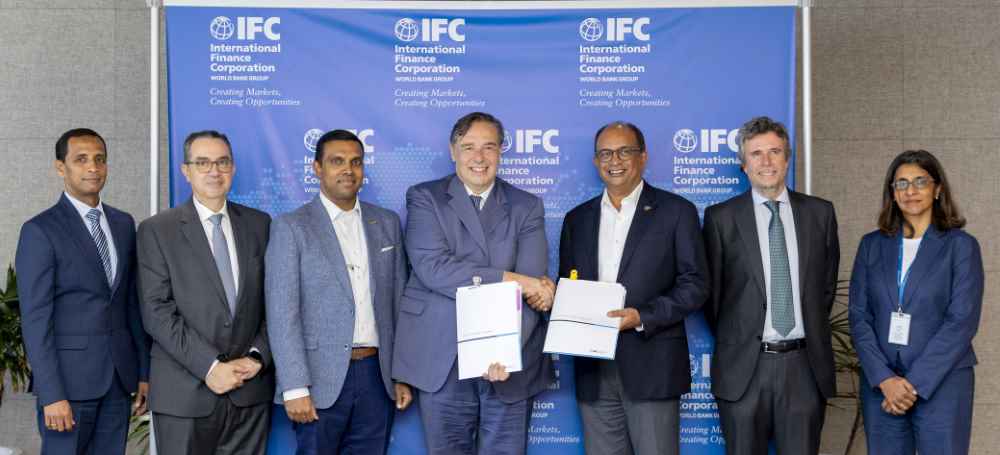Colombo, Sri Lanka, May 6, 2024—Concluding a two-day visit, IFC’s Vice President for Asia Pacific, Riccardo Puliti, signaled IFC’s commitment to supporting Sri Lanka’s ongoing reforms and growth agenda, while emphasizing the importance of private sector-led development for inclusive economic growth.
The visit served as an opportunity for Puliti to engage with key stakeholders, including meeting the President of Sri Lanka, H.E. Ranil Wickremasinghe, Minister of Power and Energy, Hon. Kanchana Wijesekera, Governor of the Central Bank of Sri Lanka, Dr. Nandalal Weerasinghe, private sector representatives, and development partners.
“Sri Lanka has immense potential. As the country recovers from the unprecedented economic crisis, it is crucial to maintain the momentum and continue implementing key measures to support the transition from economic stabilization to sustainable growth. By embracing necessary reforms, fostering a conducive business environment, and prioritizing sustainable, inclusive growth, Sri Lanka can unlock its full economic potential and create a bright future for its people,” said Puliti.
Puliti signed an agreement for a new equity investment in Sunshine Healthcare Lanka Limited to support the company in its growth plan to increase its pharmaceutical manufacturing capacity and expand the pharmaceutical retail footprint.
“From providing banks with a much-needed cross-currency swap facility a year ago, to now investing in equity, IFC is committed to supporting Sri Lanka as it transitions from stabilization to sustainable growth. This is a vote of confidence in the country’s private sector and economic recovery,” said Puliti.
While in Colombo, Puliti also signed an advisory engagement with Commercial Bank of Ceylon (CBC) to scale up green finance, fostering a sustainable future for Sri Lanka’s financial sector. Through this partnership, funded by the European Union, IFC aims to assist CBC in its transition towards net-zero and diversify its green finance portfolio.
“IFC will continue to assist Sri Lanka in developing and scaling up green finance to support the country in its path to a net-zero future,” said Puliti.
With over five decades of operations in Sri Lanka, IFC’s efforts in the country focus on three strategic pillars: supporting innovation for growth (including export diversification, start-ups, niche market agriculture, value additions for export, and high tech manufacturing); growth-enabling sustainable infrastructure (including low-cost clean energy, and sustainable transport and logistics systems); and deepening social and financial inclusion (including digitization, and the economic participation of underserved people, especially women).
“We continue to work with the private sector to create a robust investment pipeline, along with supporting the government on the ongoing reform agendas. These moves are crucial in creating quality jobs, enhancing competitiveness, and bolstering growth,” said Puliti. “IFC intends to deepen our investments in the country, recognizing the potential and opportunities that lie ahead.”
Since the onset of the pandemic, IFC has invested over $800 million in Sri Lanka providing essential long-term capital and trade financing to help sustain businesses and preserve jobs. Recently, IFC partnered with Citizens Development Business Finance PLC (CDB) to help expand its climate finance product offerings and devise a carbon credit aggregation business model. IFC also collaborated with CBC to build a Supply Chain Financing (SCF) strategy that will enable the Bank to lend more to small and medium-sized enterprises and establish itself as a leading SCF bank in Sri Lanka.




